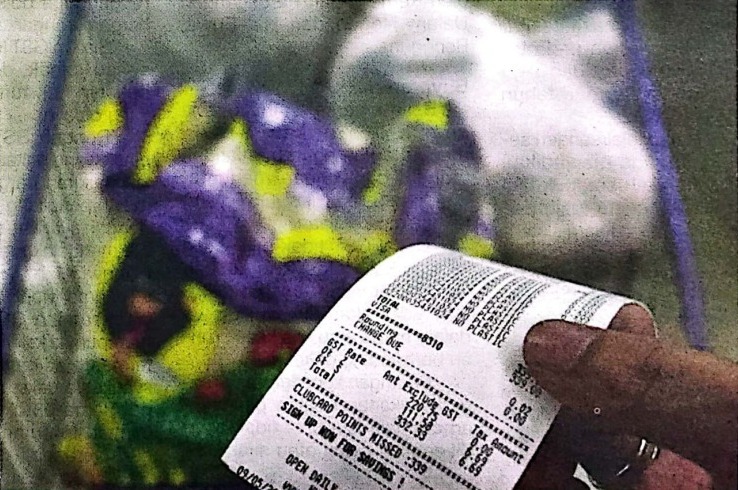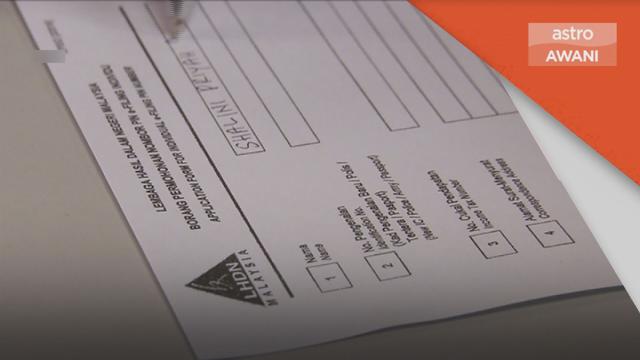KUALA LUMPUR: The proposed introduction of sales tax for online sales of low-value goods (LVG) will further reduce the purchasing power of consumers, although it will widen the tax base for the Malaysian government, tax experts warn.
They also said the Finance Ministry must provide clarity on the type of products classified as LVG.
The
MEDIA
MEDIA
‘New tax to hurt spending power’

The Sales Tax (Amendment) Bill 2022, which seeks to impose a flat 10 per cent tax on goods purchased online, was passed in the Dewan Rakyat earlier this month. NSTP/AZIAH AZMEE
KUALA LUMPUR: The proposed introduction of sales tax for online sales of low-value goods (LVG) will further reduce the purchasing power of consumers, although it will widen the tax base for the Malaysian government, tax experts warn.
They also said the Finance Ministry must provide clarity on the type of products classified as LVG.
The Sales Tax (Amendment) Bill 2022, which seeks to impose a flat 10 per cent tax on goods purchased online, was passed in the Dewan Rakyat earlier this month.
The bill was passed with a majority voice vote and will be implemented next year.
The sales tax will be imposed on imported LVG with a value of RM500 and below that are sold by sellers on online platforms using courier services.
Malaysia Association of Tax Accountants secretary general Dr Mohd Fairuz A Razak said the bill would further affect consumers who had been beleaguered by rising costs due to higher inflation and the weakening domestic currency.
Besides that, he said there was some ambiguity on the goods or classes of goods to be taxed, which was based on the finance minister’s discretion.
Mohd Fairuz said the big question remained unclear – the type of products classified as LVG.
“The authority must be clear on this, or it will be subject to abuse,”
he told the New Straits Times.
Presently, he said tax on online sales was limited to imported goods that cost more than RM500.
With local manufacturers currently subjected to a five to 10 per cent sales tax, the finance minister previously stated that the tax would ‘level the playing field’ and generate RM200 million in revenue annually.
Ernst & Young Tax Consultants Sdn Bhd Malaysia tax managing partner Farah Rosley said it was important for the government to provide guidance on the implementation of the tax.
This is to ensure clarity to registered selers on how to collect the tax when their customers make purchases online.
“With the implementation date set to be from January 1, 2023 there may be insufficient time to ensure readiness.
Ample time is needed for the sellers to thoroughly understand the system and to enable businesses to transition to this new requirement,”
she said.
Farah said the additional tax might lead to increase in prices for such goods.
“The real impact on the prices of goods is, however, not yet known,”
she added.
Deloitte Malaysia indirect tax leader Tan Eng Yew said a more level playing field would help retail businesses that had been at a disadvantage previously.
Although the tax would increase prices for customers, Tan said it would not deter customers from purchasing things online because most of the items bought were not necessities.
“To me, the items they were buying online were not necessities. So a 10 per cent tax will not deter them from buying online.
But with a level playing field and potentially with prices being more equalised, people can just buy from retail stores instead of going online,”
he said.
‘New tax to hurt spending power’

The Sales Tax (Amendment) Bill 2022, which seeks to impose a flat 10 per cent tax on goods purchased online, was passed in the Dewan Rakyat earlier this month. NSTP/AZIAH AZMEE
KUALA LUMPUR: The proposed introduction of sales tax for online sales of low-value goods (LVG) will further reduce the purchasing power of consumers, although it will widen the tax base for the Malaysian government, tax experts warn.
They also said the Finance Ministry must provide clarity on the type of products classified as LVG.
The Sales Tax (Amendment) Bill 2022, which seeks to impose a flat 10 per cent tax on goods purchased online, was passed in the Dewan Rakyat earlier this month.
The bill was passed with a majority voice vote and will be implemented next year.
The sales tax will be imposed on imported LVG with a value of RM500 and below that are sold by sellers on online platforms using courier services.
Malaysia Association of Tax Accountants secretary general Dr Mohd Fairuz A Razak said the bill would further affect consumers who had been beleaguered by rising costs due to higher inflation and the weakening domestic currency.
Besides that, he said there was some ambiguity on the goods or classes of goods to be taxed, which was based on the finance minister’s discretion.
Mohd Fairuz said the big question remained unclear – the type of products classified as LVG.
“The authority must be clear on this, or it will be subject to abuse,”
he told the New Straits Times.
Presently, he said tax on online sales was limited to imported goods that cost more than RM500.
With local manufacturers currently subjected to a five to 10 per cent sales tax, the finance minister previously stated that the tax would ‘level the playing field’ and generate RM200 million in revenue annually.
Ernst & Young Tax Consultants Sdn Bhd Malaysia tax managing partner Farah Rosley said it was important for the government to provide guidance on the implementation of the tax.
This is to ensure clarity to registered selers on how to collect the tax when their customers make purchases online.
“With the implementation date set to be from January 1, 2023 there may be insufficient time to ensure readiness.
Ample time is needed for the sellers to thoroughly understand the system and to enable businesses to transition to this new requirement,”
she said.
Farah said the additional tax might lead to increase in prices for such goods.
“The real impact on the prices of goods is, however, not yet known,”
she added.
Deloitte Malaysia indirect tax leader Tan Eng Yew said a more level playing field would help retail businesses that had been at a disadvantage previously.
Although the tax would increase prices for customers, Tan said it would not deter customers from purchasing things online because most of the items bought were not necessities.
“To me, the items they were buying online were not necessities. So a 10 per cent tax will not deter them from buying online.
But with a level playing field and potentially with prices being more equalised, people can just buy from retail stores instead of going online,”
he said.
Media Terkini

SYOR CUKAI LEBIH ADIL

Bajet 2023 | Tangani ketirisan, halusi sistem percukaian | Astro Awani

PERSATUAN AKAUNTAN PERCUKAIAN MALAYSIA (M.A.T.A)
Block 1D, 27-1, Jalan Wangsa Delima 12,
Wangsa Link, Pusat Bandar Wangsa Maju
53300 Kuala Lumpur.

WAKTU OPERASI
Isnin hingga Jumaat
9.00 pagi – 5.00 petang
![]()
HUBUNGI KAMI
E-mel: mata@mata.org.my
Tel: 03-4149 9599 atau 5078
Faks: 03-4149 7577
HP: 016-240 9343

PERSATUAN AKAUNTAN PERCUKAIAN MALAYSIA (M.A.T.A)
Block 1D, 27-1, Jalan Wangsa Delima 12,
Wangsa Link, Pusat Bandar Wangsa Maju
53300 Kuala Lumpur.

WAKTU OPERASI
Isnin hingga Jumaat
9.00 pagi – 5.00 petang
![]()
HUBUNGI KAMI
E-mel: mata@mata.org.my
Tel: 03-4149 9599 atau 5078
Faks: 03-4149 7577
HP: 016-240 9343

